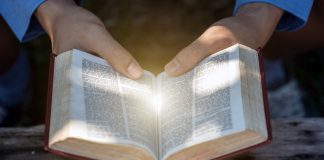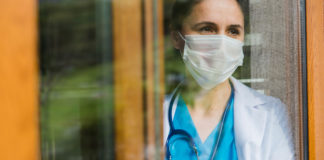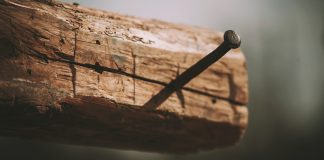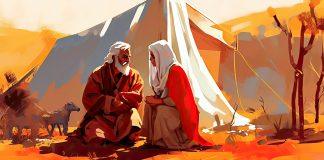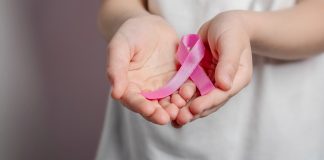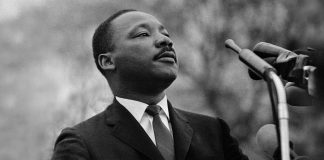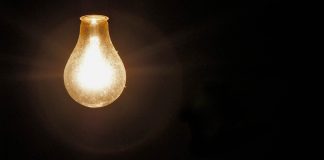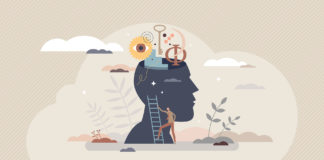The Methodist Church | Methodism in search of holiness
The Methodist Church emphasised practical sanctification and mission, these aspects being necessary in contemporary Christianity as well.
The outside world and the bubbles in our heads
Plato may have been one of the first to think this way, but in modern sociology it was Walter Lippmann who made history with the idea that people do not have access to reality in all its complexity, but operate on images of that reality that they construct for themselves.
Eight months into the pandemic, where are we headed?
We do not know what 2020 would have looked like without a pandemic, but we already know that some losses could have been prevented. And, if the future lies in the spectrum of pandemics, as the WHO warns, we should learn all the lessons that can be learned from this long journey.
Love does not give up
We love people for who they are. But there is a kind of love that is too high for us to truly comprehend in all its nuances, a love that manifests itself towards people no matter who they are or what they become. We find a love such as this in the beautiful story of Ian and Larissa.
The story of blessed Ayyub
During the time when the people of Israel were enslaved in Ta Kemet (the Black Land), and Prince Moses, the great scribe, had taken refuge among the northern Arabian tribe of Midian, a captivating story shared by the campfire caught his attention. It was the tale of another prince who, like him, had suddenly lost everything.
Uncertain certainties and the fragility of reason
“For a long time I supposed that somewhere in the university, there were really clever people whom I had not yet met, and whom I should at once recognise as my intellectual superiors, but during my second year, I discovered that I already knew all the cleverest people in the university. This was a disappointment to me, but at the same time gave...
The role of Christian marriage counselling
Isaac and Rebecca, two biblical characters, had problems in their marriage. At first they struggled to fall pregnant. Then, when she eventually got pregnant, it was a difficult pregnancy, which affected them very much—so much so that they didn't know what to do. I suppose they had all sorts of discussions about the situation, but at some point the discomfort just became too...
Understanding breast cancer
Breast cancer claims the lives of more women than most other forms of cancer. In the United States, the incidence of this disease in women is about one in eight, which is nearly 13 per cent, while in Australia and New Zealand it’s slightly lower at one in nine (11 per cent).
Martin Luther King, Jr. | What have we to do with heroes?
On August 28, 2011, when the Martin Luther King, Jr. Memorial was opened to the public in Washington D.C., 48 years had passed since the famous “I have a dream” speech by the young African-American Baptist pastor.
How risk-free is alcohol tasting as a child?
To offer one’s child a sip of alcohol during mealtime or for other special occasions is not as rare as one might like to believe. Even if parents believe that a controlled start to alcohol consumption is protection from bingeing later on, the reality is that alcohol tasting in childhood generates major risks for the child’s development.
The end of drugs?
In mid-April 2014, the words 'scandal', 'secret', 'drugs', and 'Roche' (the Swiss drug giant) delighted the medical press, which was quick to publish tantalizing news about the ineffectiveness of Tamiflu and the enormous amounts spent by governments in order to stock up on the drug, in preparation for possible flu epidemics.
Antonyms will not exist forever
God is never the one to leave. He is the one who is abandoned. Even when Scripture describes Him as turning His face away, we understand that this is in fact the reluctant and painful recognition of man's decision to go beyond the point of no return in his relationship with God.
COVID-19: What if we received bad news in a void?
What if there was no good news to give us confidence that we could get through the troubles facing us now? What if there was no good news to assure us that we are cherished, loved and supported, that we are not alone?
When the face of the world changes | The epistemological significance of the Protestant Reformation
After Jesus was born—that is, in the era we call Anno Domini (AD)—the history of mankind was different from that of Christianity. As it is known, the latter was not the history of a triumphant march of Christianity towards its universalization and the unification of the human race. On the contrary, this history can rather be characterised as a manifestation of “the great...
The necessity of being wrong
Nobody likes to lose an argument. The feeling of being proven wrong is never a good one. At best, it might provide a slight dent to your ego or sense of self. At worst, it can be a thoroughly humiliating affair, or reveal that one of the foundations of your beliefs is invalid or misplaced. But no matter where it lands on the...












